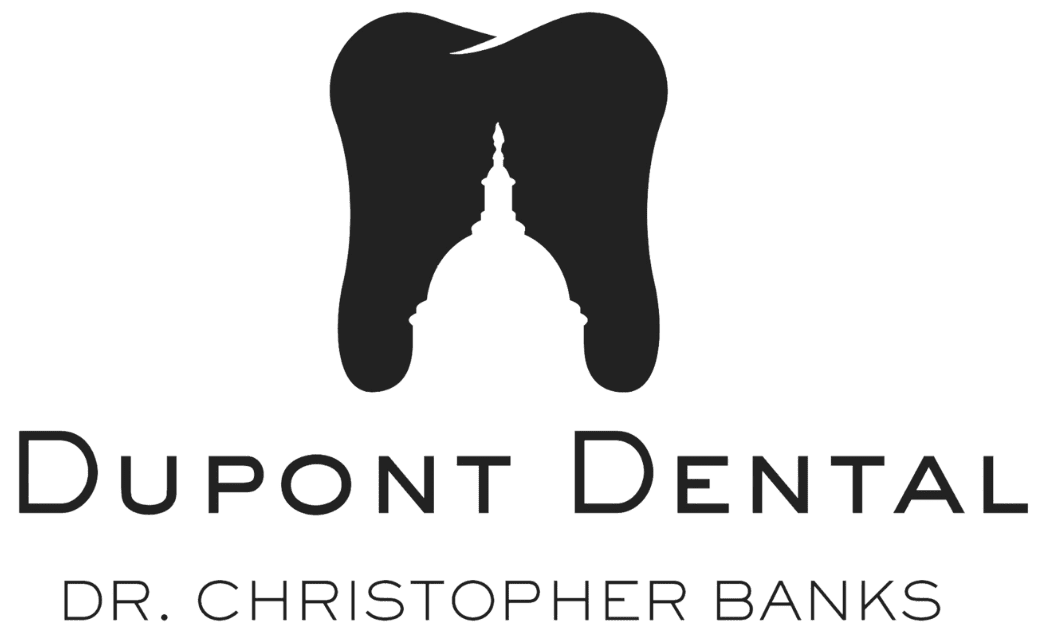Invisalign, a revolutionary orthodontic treatment, offers a clear and comfortable alternative to traditional braces. Understanding Invisalign eligibility and if clear aligners suits your dental needs is crucial before embarking on this transformative journey. At Dupont Dental, Dr. Christopher Banks provides expert guidance to assess your eligibility for Invisalign.

Factors Influencing Invisalign Eligibility
Dental Health
Good dental health forms the foundation for successful Invisalign treatment. Dr. Banks emphasizes the necessity of having healthy teeth and gums before starting the process. Patients must not have active gum disease, which could complicate treatment and affect overall oral health. Healthy teeth and gums ensure that the Invisalign aligners can work effectively to move the teeth to their optimal positions.
Orthodontic Needs
Invisalign can correct a variety of dental issues, including crooked teeth, gaps, overbites, underbites, and crossbites. During your consultation at Dupont Dental, Dr. Banks will evaluate the complexity of your orthodontic problems. While Invisalign works well for many cases, severe misalignments might require other orthodontic interventions. Dr. Banks will provide a thorough assessment to determine the best approach for your specific needs.
Medical Considerations
Impact of Medical Conditions
Chronic health issues and certain medications can affect dental health, influencing Invisalign eligibility. During the consultation, Dr. Banks will review your medical history to identify any conditions that might impact your treatment. For instance, conditions like diabetes or medications that cause dry mouth could require special attention to ensure the aligners do not exacerbate existing issues. Dr. Banks will carefully consider these factors to ensure a safe and effective treatment plan.
Pregnancy and Invisalign
Pregnancy requires special consideration when planning orthodontic treatment. Dr. Banks advises that while Invisalign is generally safe during pregnancy, hormonal changes can affect oral health. Issues such as increased gum sensitivity might arise, warranting close monitoring throughout the treatment.
Consultation with Dr. Christopher Banks
Importance of a Comprehensive Evaluation
A personalized consultation with Dr. Banks is essential for determining Invisalign eligibility. During this evaluation, he will conduct a thorough examination of your dental and medical history, perform necessary diagnostics, and discuss your orthodontic goals. This comprehensive approach allows Dr. Banks to design a treatment plan that caters to your specific needs, ensuring the best possible outcomes.
Customized Invisalign Treatment Plans
At Dupont Dental, Dr. Banks offers customized Invisalign treatment plans tailored to each patient’s unique orthodontic needs. By using advanced imaging technology, he creates precise aligners that gradually move your teeth into the desired position. Dr. Banks remains committed to your progress throughout the treatment, offering guidance and adjustments as necessary.
Addressing Patient Concerns and Expectations
Open communication between the patient and Dr. Banks plays a crucial role in the success of Invisalign treatment. During the consultation, Dr. Banks addresses any concerns or questions you might have, setting realistic expectations for the treatment process. He provides detailed information about what to expect, including the duration of treatment, the importance of wearing the aligners as prescribed, and how to care for the aligners.
Frequently Asked Questions
How long does Invisalign treatment usually take?
The duration of Invisalign treatment varies based on the complexity of your case. Simple alignment issues might take 6 months, while more complex cases typically require 12-18 months to achieve optimal results.
Your treatment timeline depends on several factors, including how much your teeth need to move and how consistently you wear your aligners. Most patients start seeing noticeable improvements within the first few months of treatment.
Can I get Invisalign if I’ve already had braces?
Absolutely, you can get Invisalign even if you’ve previously had braces. Many adults seek Invisalign treatment when teeth have shifted after earlier orthodontic work, especially if they stopped wearing their retainers. Invisalign works well as a touch-up solution for minor relapse cases, though more complex issues might require traditional braces again. We will evaluate your situation to determine whether Invisalign will address your current alignment concerns effectively.
Are there age limits for Invisalign eligibility?
There’s no strict age limit—Invisalign works for teens and adults. We recommend once all permanent teeth have erupted, around age 12 or older. Adults of any age can benefit as long as their teeth and gums are healthy.
Can I use Invisalign if I have crowns or veneers?
Invisalign generally works well with dental restorations like crowns and veneers. The aligners apply gentle pressure to move your teeth regardless of whether they’re natural or have restorations. In some cases, we may need to modify your treatment plan to accommodate these dental restorations.
During your consultation, we’ll carefully evaluate your situation to ensure Invisalign will effectively work with your existing dental work without causing damage.
Are Invisalign aligners painful to wear?
Invisalign causes less discomfort than traditional braces, but you’ll likely feel pressure for a day or two after switching to each new aligner. This temporary sensation actually indicates your treatment is working as teeth gradually shift into position.
Most patients describe it as a feeling of tightness rather than sharp pain. Over-the-counter pain relievers can help you manage any discomfort, which typically fades quickly as your mouth adjusts to each new aligner.
Can I eat and drink normally with Invisalign?
You’ll need to remove your aligners when eating or drinking anything other than plain water. This gives you more freedom than traditional braces since you can enjoy all your favorite foods without restrictions. Just be sure to brush your teeth before putting the aligners back in to prevent staining and decay. Remember that you should wear your aligners for 20-22 hours daily, so plan your meals and snacks accordingly to maintain this schedule.
Will Invisalign affect my speech?
Invisalign may initially cause a slight lisp or speech change, especially with “s” sounds. Most people adjust within a few days as their tongue gets used to the aligners. Practicing speaking aloud can help speed up the adjustment.
Conclusion
Invisalign offers a transformative solution for achieving a straighter, healthier smile. Dr. Christopher Banks at Dupont Dental ensures that each patient receives a thorough evaluation to determine their eligibility for this innovative treatment. By considering factors related to dental health, orthodontic needs, age, and medical conditions, Dr. Banks provides personalized care tailored to each patient’s unique situation. Schedule a consultation at Dupont Dental today to explore your options and take the first step towards a beautiful, confident smile.
